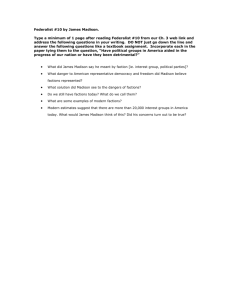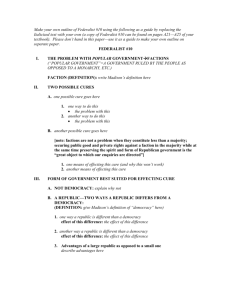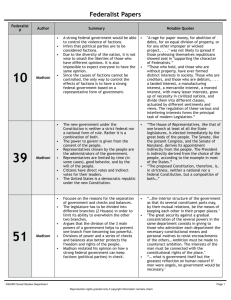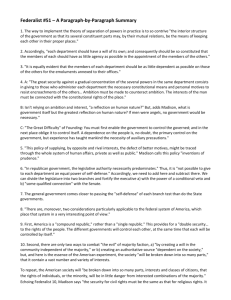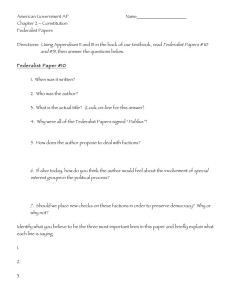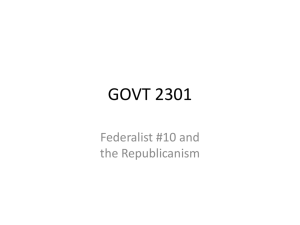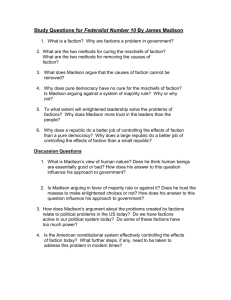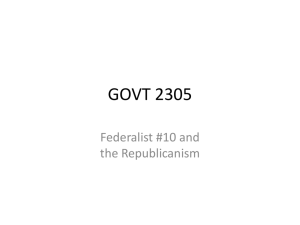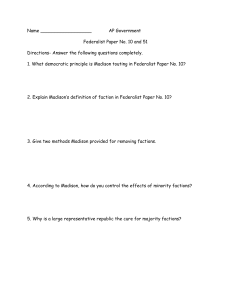Democracy and Majority Rule I
advertisement
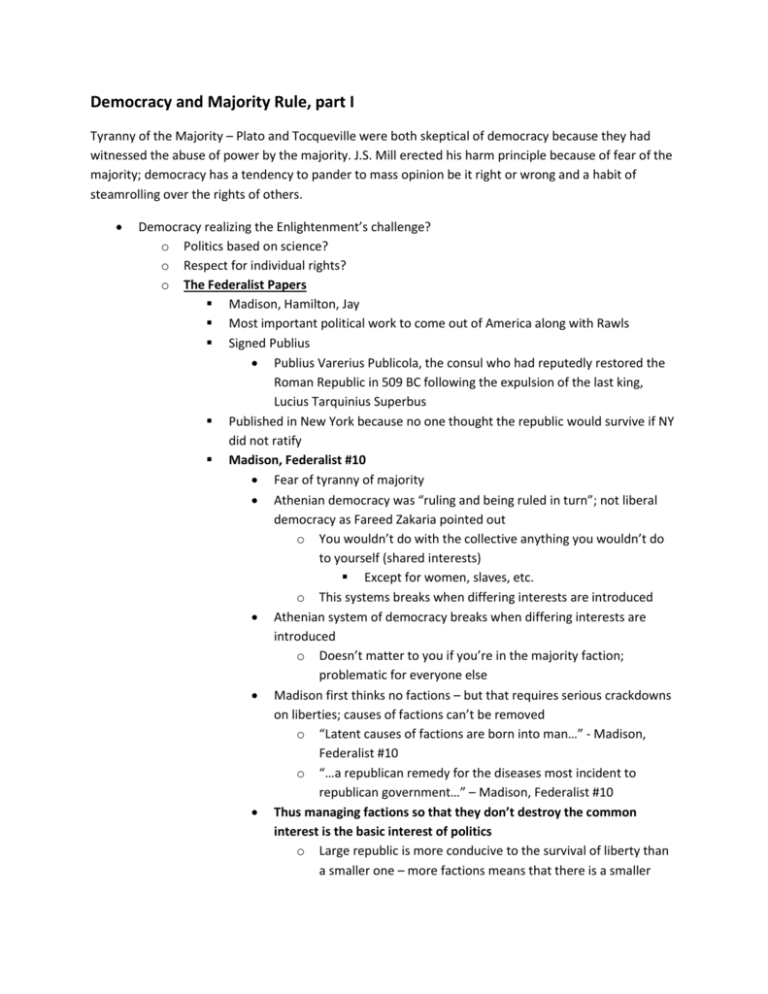
Democracy and Majority Rule, part I Tyranny of the Majority – Plato and Tocqueville were both skeptical of democracy because they had witnessed the abuse of power by the majority. J.S. Mill erected his harm principle because of fear of the majority; democracy has a tendency to pander to mass opinion be it right or wrong and a habit of steamrolling over the rights of others. Democracy realizing the Enlightenment’s challenge? o Politics based on science? o Respect for individual rights? o The Federalist Papers Madison, Hamilton, Jay Most important political work to come out of America along with Rawls Signed Publius Publius Varerius Publicola, the consul who had reputedly restored the Roman Republic in 509 BC following the expulsion of the last king, Lucius Tarquinius Superbus Published in New York because no one thought the republic would survive if NY did not ratify Madison, Federalist #10 Fear of tyranny of majority Athenian democracy was “ruling and being ruled in turn”; not liberal democracy as Fareed Zakaria pointed out o You wouldn’t do with the collective anything you wouldn’t do to yourself (shared interests) Except for women, slaves, etc. o This systems breaks when differing interests are introduced Athenian system of democracy breaks when differing interests are introduced o Doesn’t matter to you if you’re in the majority faction; problematic for everyone else Madison first thinks no factions – but that requires serious crackdowns on liberties; causes of factions can’t be removed o “Latent causes of factions are born into man…” - Madison, Federalist #10 o “…a republican remedy for the diseases most incident to republican government…” – Madison, Federalist #10 Thus managing factions so that they don’t destroy the common interest is the basic interest of politics o Large republic is more conducive to the survival of liberty than a smaller one – more factions means that there is a smaller chance that many groups would see eye to eye on the same issue And the minority party will overthrow the government if they can, if not then why not become criminals? The minority won’t participate in democracy o o You want many factions (Cross-cutting cleavages, extended republic) If you’re a majority on one question, but you know you may be in a minority on the next question then you have reasons to not tyrannize the minority; and if you’re in the minority then you don’t overthrow the government because you may win the next round o Leads to… The Pluralist Theory of Democracy (Institutionalized Uncertainty of Outcomes) Madison, Federalist Papers #51 Non-tyrannical Republic “Ambition must be made to counteract ambition.” – Madison, Federal Papers #51 o Checks and balances Pure democracy leads to tyranny and we have to check it with an institutional scheme that limits what can be done After 9/11 the Executive’s power grab was blocked by the Judicial branch Supermajorities o Supermajority required to amend the Constitution 2/3 of both houses and ¾ of the states o Keep current majority from circumventing minority rights Veto Points o Bill of Rights o Supermajority requirements o Separation of powers Madison correctly points out that Separation of powers is just words on paper; there is no real mechanism to make sure that ambition counters ambition.
